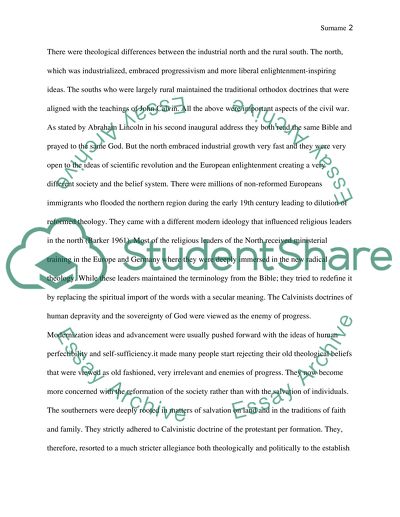Cite this document
(“Role of Religion in the American Civil War Essay”, n.d.)
Retrieved from https://studentshare.org/religion-and-theology/1701930-role-of-religion-in-the-american-civil-war
Retrieved from https://studentshare.org/religion-and-theology/1701930-role-of-religion-in-the-american-civil-war
(Role of Religion in the American Civil War Essay)
https://studentshare.org/religion-and-theology/1701930-role-of-religion-in-the-american-civil-war.
https://studentshare.org/religion-and-theology/1701930-role-of-religion-in-the-american-civil-war.
“Role of Religion in the American Civil War Essay”, n.d. https://studentshare.org/religion-and-theology/1701930-role-of-religion-in-the-american-civil-war.


